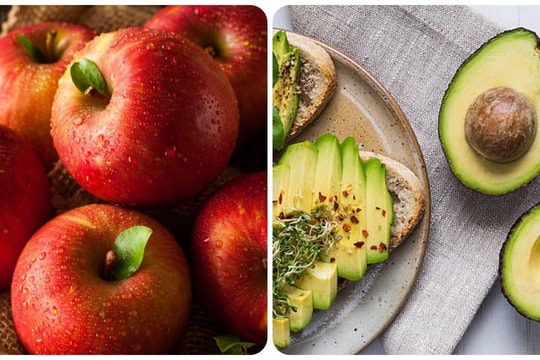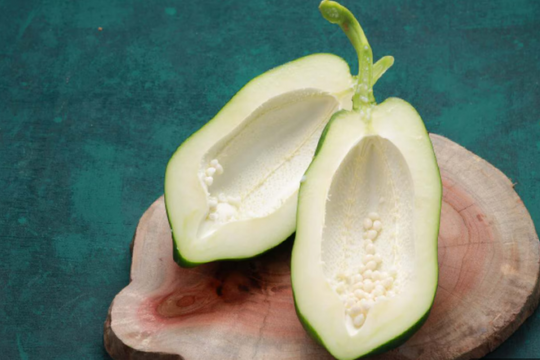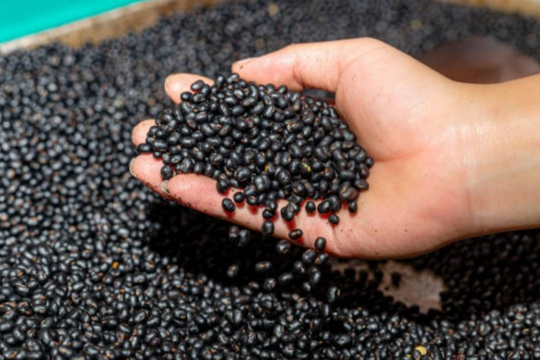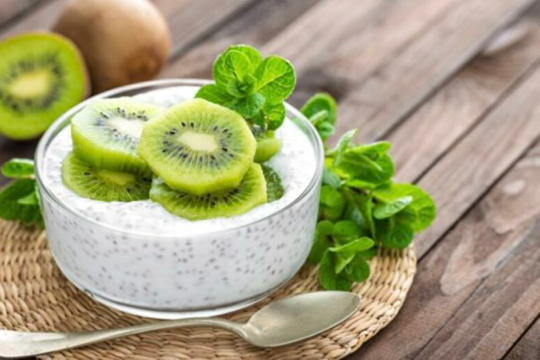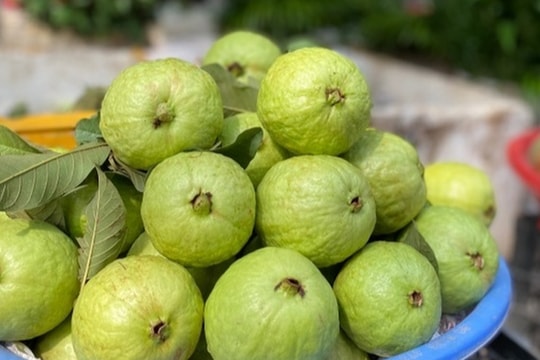7 signs of stress that require vitamin and mineral supplements for the body
When the body is stressed, many vitamins and minerals are mobilized, and if these micronutrients are not supplemented promptly, the body will immediately send out signals such as mouth ulcers, teeth grinding, and white spots on fingernails.
AXA's survey of 4,000 participants found that four in five adults feel stressed in a typical week and one in 10 feel stressed all the time.
It's important to look for signs of stress and address them quickly with diet, says Charlotte Watts, nutritionist, yoga instructor and author of The De-Stress Effect.
 |
Mouth ulcers (Due to lack of vitamin B6)
Tiny cracks at the corners of your lips are a sure sign that your body is lacking in B vitamins, especially B6.
B vitamins are important for nervous system health as well as being a component of enzymes that help convert carbohydrates, fats, and proteins into energy. Therefore, our bodies use them during stress responses.
Very important for the nervous system, B6 participates in the production of neurotransmitters serotonin and dopamine, which regulate mood and motivation, as well as melatonin, which regulates sleep. That is why we see symptoms of insomnia, loss of interest, boredom... when stress is prolonged.
B6 needs may be higher when taking birth control pills or antidepressants.
Foods rich in B6: carrots, chicken, eggs, fish, meat, beans, spinach, sunflower seeds, walnuts, avocado, bananas, peas, broccoli, brown rice, whole grains, cabbage, corn and potatoes.
2. Teeth grinding (Due to lack of vitamin B5)
Unlike other B vitamins, B5 is known as the anti-stress vitamin because it helps produce adrenal hormones, cholesterol, and antibodies - which are used a lot when the body is stressed.
Note that the cholesterol produced here is not entirely “bad”. The body needs it to produce new cells and steroid hormones like cortisol and DHEA that are part of the stress response.
Chronic stress also causes teeth grinding, which contributes to the brain not being able to fully rest because the jaw muscles are always tense like a guitar string - a way for the body to cope with danger while actually being due to low B5 levels.
This vitamin is also needed for the production of the neurotransmitter acetylcholine, which helps us calm down after stress has passed. If the levels of this substance in the body are low, it will be difficult to recover from stress.
It's a good idea to take a vitamin B supplement (e.g., B vitamins or a multivitamin) as they work together to provide the best energy and mental health.
Food sources: beef, eggs, green vegetables, kidney, beans, liver, mushrooms, nuts, sea fish, rye.
3. White spots on nails (The body needs zinc)
Although white spots on nails are often thought to be a sign of calcium deficiency, they are actually a sign of zinc deficiency.
Zinc is important for enzyme systems in the body, especially immunity and the production of hormones, including insulin and sex hormones.
This is the most widely used mineral in the body and is also used for energy and healing and regeneration if adequate supplies are provided.
Stress will drain a lot of zinc and stress can be charted through the appearance of white spots from the base of the nail.
Zinc in plants is less than in animals and is more difficult to absorb due to its combination with phytate (a fiber), so vegetarians need to supplement 15-20mg of zinc per day.
Foods: fish, meat, sunflower seeds, pumpkin seeds, pine nuts, almonds, oysters and clams, crab, rye flour, cheddar cheese.
 |
4. Constipation and diarrhea (The body needs magnesium)
Magnesium is an essential mineral, 70% of which is found in bones and 30% in soft tissues and body fluids.
When the body is stressed and consumes a lot of sugar, a large amount of magnesium is mobilized.
This stress relieving mineral helps relax muscles and nerves and this stops when magnesium in the body is depleted.
Low magnesium levels are also associated with stress symptoms such as anxiety, irritability, insomnia, depression and muscle pain.
Because the muscles in the digestive tract also need magnesium to “relax”, when we feel nervous, the digestive system is also affected, with symptoms of constipation or diarrhea.
Supplementing with 300-500mg of magnesium daily may be helpful at this time.
Foods: buckwheat, almonds, soybeans, dark green leafy vegetables, carrots, peas, sweet potatoes, sunflower seeds, sesame seeds, lentils, avocado, cauliflower, fish, meat.
5. Bleeding gums (Vitamin C deficiency)
Vitamin C is an antioxidant and is involved in at least 300 metabolic functions in the body.
It also contributes to the production of anti-stress hormones, interferons (immune system proteins) as well as contributing to the production of collagen - a substance that makes up all tissues in the body.
That's why vitamin C deficiency causes slow-healing ulcers - because tissues are not regenerated while being constantly damaged.
This can be seen through bleeding while brushing teeth - a sign that the body has "burned" vitamin C too quickly due to stress.
Other signs of deficiency include inflammation, infection and difficulty recovering from illness. Vitamin C is also depleted by smoking, drinking alcohol, taking birth control pills, steroids and antidepressants.
Foods: berries, citrus fruits, leafy greens, asparagus, avocados, cauliflower, Brussels sprouts, watermelon, kale, mangoes, onions, papaya, green beans, pineapple, radishes, spinach, strawberries, tomatoes, and watercress.
 |
6. Acne on arms and thighs (Due to lack of vitamin E)
Vitamin E is a fat-soluble antioxidant responsible for protecting body fat and reproductive function.
Low levels of vitamin E and omega oils can be seen as hard, acne-like bumps on the arms and thighs – caused by too much keratin protein buildup.
Vitamin E also helps improve blood circulation, improve blood clotting, scar healing, regulate blood pressure and increase sperm production.
Foods: flaxseed oil, dark green leafy vegetables, prunes, nuts, beans, seeds, whole grains, brown rice, eggs, milk, kelp, oatmeal, soybeans, sweet potatoes and kale.
7. Frequent sore throat (Vitamin A deficiency)
Vitamin A is essential for vision as well as fighting skin and respiratory, digestive and urinary infections.
When you have a cold that turns into a sore throat, it's a sign that you need to eat the vegetables and fiber in your stew to help your body recover quickly.
According to Dantri
| RELATED NEWS |
|---|

